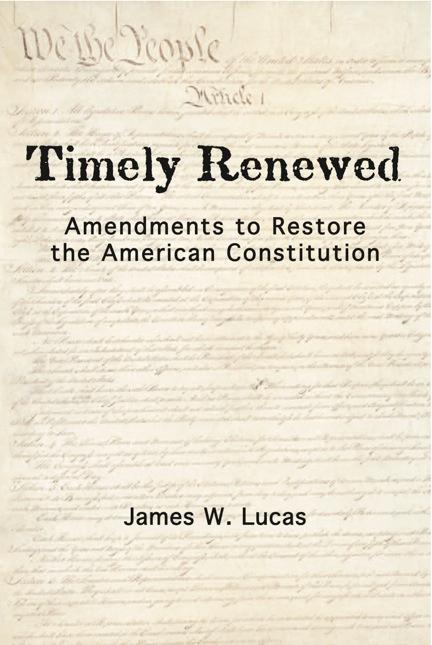Faced with this de facto control of the amendment process by the federal Congress, many have turned to an unused provision in Article V. It provides that “Congress,.. on the Application of the Legislatures of two thirds of the several States, shall call a Convention for proposing Amendments, which…shall be valid to all Intents and Purposes, as Part of this Constitution, when ratified by the Legislatures of three fourths of the several States.” Calls for Congress to call a convention have come close to the required two-thirds several times, but have never reached the threshold. (Some argue that the two-thirds threshold has been met on a cumulative basis, but no one in the political class will acknowledge this.) However, with the rising tide of constitutional awareness among the American people, and their growing resistance to an ever more massive federal government, many now argue for a new push for a convention.
While I am enormously sympathetic with the sentiments behind this approach, let us analyze whether that really would be the most effective means of restoring the integrity of the Constitution.
Let us assume that the enormous political task of getting two-thirds of the state legislatures to call for a convention has succeeded. This will be big news, attracting huge interest. But, who will go to this convention? If historical precedent is followed, the delegates will be selected by the state legislatures. It is also possible that Congress will decide who the convention delegates will be. They might also be elected, in which case the candidates for the convention will likely come from the established political parties. In any case, are the politicians going to choose stalwart defenders of the original Constitution? Perhaps some. However, it is far more likely that they will choose themselves. What lawyer/politician would not want to go the second constitutional convention? Of course, for appearances’ sake, the politicians would name or nominate a few non-politicians. And what kind of non-politician is most likely to be selected? Why “experts,” of course. And who are considered experts on constitutional law? Law school professors. And, in case you did not know, law school professors are the leading enemies of applying any original meaning to the Constitution.
So what would happen at a convention? Leftist law school professor delegates would press for amendments which would move the government even farther away from the original constitutional structure, and deal-making politician/delegates would accommodate them, because that is what politicians do.
Some have argued that the delegates could be bound by the states’ call for a convention to only consider certain pre-established amendments. However, once the second constitutional convention was convened, one would be hard-pressed to deny the introduction of new amendments in light of the precedent of the convention of 1787, which far exceeded its original instructions to simply revise the Articles of Confederation. Further, the egos of the lawyer/politicians and law school professors who would make up such a convention would not permit them to just stop at voting on pre-established amendment proposals. Even if many of the politician/delegates were pledged to do so, it is inevitable that some states’ proposals would differ, and that “resolving” those differences would open the door to the new proposals pushed by the leftist law professor and politician delegates.
Finally, even if a second constitutional convention dominated by politicians and law professors produced amendments which actually restricted federal power and restored original constitutional meanings, they would still have to be approved by three-fourths of the States. It would only take leftist political control of one-fourth of the States to block their ratification. In contrast, the Supreme Court changes the Constitution by a simple five-vote majority.
This three-fourths hurdle is higher than any other constitutional amendment procedure in the world. No State of the United States nor any democratic foreign nation requires a three-fourths vote to amend its constitution. We must remember that the United States Constitution was the first written national constitution in the history of the world. Subsequent constitution writers have realized that if one makes a constitution too hard to amend there will be either change by revolution, or by subterfuge. The latter is what has happened to our Constitution, as the Supreme Court has surreptitiously rewritten the Constitution. The framers did not foresee that the Supreme Court would arrogate to itself the right to wantonly change the Constitution, and that the amendment process would be our only hope of restoring it. Any meaningful amendments initiated by a convention would have to surmount this vastly disproportionate three-fourths barrier.


